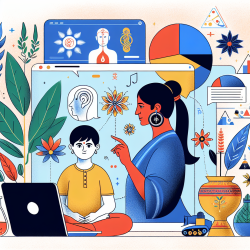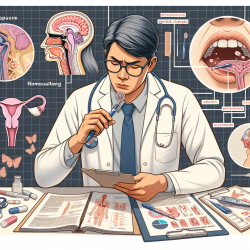In the realm of speech-language pathology, particularly in online therapy services like those provided by TinyEYE, integrating diverse and holistic approaches can yield remarkable outcomes for children. One such approach is derived from the ancient Indian medical system of Ayurveda, as detailed in the research article "MIND IN AYURVEDA" by A. Venkoba Rao. This article offers valuable insights that can be implemented to enhance therapeutic practices and encourage further research.Ayurveda, a 5000-year-old system of medicine, emphasizes a holistic view of health, focusing on the mind as both a sensory and motor organ. The article discusses the nature of the mind, its structure, and its functions, which can be directly applicable to speech-language pathology. By understanding these principles, practitioners can develop more comprehensive and effective therapy plans.
Key Ayurvedic Concepts for Practitioners
The research article outlines several core Ayurvedic concepts that can be beneficial in speech-language therapy:
- Doshas: The three primary doshas (Vata, Pitta, and Kapha) are fundamental to understanding individual differences in temperament and constitution. Recognizing these can help tailor therapy to each child's unique needs.
- Trigunas: The three gunas (Sattva, Rajas, and Tamas) describe the qualities of the mind. A balanced state of these gunas can promote better mental health and cognitive function, essential for effective learning and communication.
- Prana, Tejas, and Ojas: These master-forms of doshas represent vital energies. Enhancing these through specific practices can improve overall well-being and mental clarity.
Implementing Ayurvedic Principles in Online Therapy
To incorporate Ayurvedic principles into online therapy sessions, practitioners can consider the following strategies:
- Personalized Therapy Plans: Assess each child's dosha type to create individualized therapy plans that address their specific needs and promote balanced mental states.
- Mindfulness and Meditation: Integrate mindfulness exercises and meditation techniques to help children achieve a balanced state of mind, enhancing their receptivity to therapy.
- Diet and Lifestyle Recommendations: Offer guidance on diet and lifestyle changes that support the child's dosha type, promoting overall health and cognitive function.
- Holistic Health Education: Educate families about the holistic nature of Ayurveda, encouraging practices that prevent disease and promote health.
Encouraging Further Research
While the principles outlined in the article provide a solid foundation, further research is essential to adapt these concepts effectively to modern therapeutic practices. Practitioners are encouraged to:
- Conduct case studies to evaluate the effectiveness of Ayurvedic principles in speech-language therapy.
- Collaborate with Ayurvedic experts to develop integrative therapy models.
- Share findings through professional networks and publications to contribute to the growing body of knowledge in this field.
By integrating Ayurvedic principles into online therapy, practitioners can create more holistic and effective treatment plans that cater to the unique needs of each child. This approach not only enhances therapeutic outcomes but also promotes overall well-being, aligning with the holistic vision of Ayurveda.To read the original research paper, please follow this link:
MIND IN AYURVEDA.










